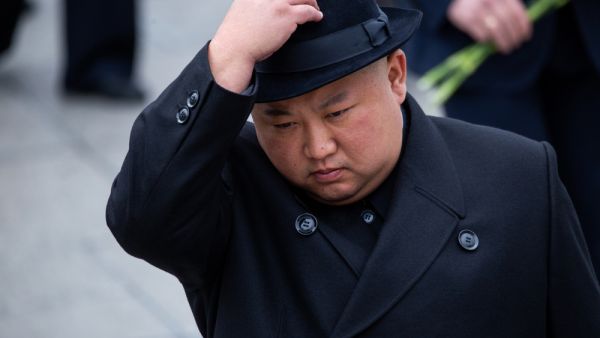North Korean leader Kim Jong-un presided over a Central Military Commission meeting and discussed "new policies for further increasing the nuclear war deterrence of the country," state media reported Sunday.
The meeting marked Kim's first public event since he visited a local fertilizer plant on May 1; ending a 20-day absence from public view that sparked a slew of speculation over his health.
Kim Jong-un last presided over a Central Military Commission meeting in mid-December last year.
According to the Korean Central News Agency, the recent enlarged meeting of the Central Military Commission of the ruling Workers' Party, also tackled important military steps as well as organizational and political measures to further bolster up.
"Set forth at the meeting were new policies for further increasing the nuclear war deterrence of the country and putting the strategic armed forces on a high alert operation in line with the general requirements for the building and development of the armed forces of the country," the KCNA said.
It did not elaborate on what the "new policies" for nuclear deterrence were, however.
"Crucial measures for considerably increasing the firepower strike ability of the artillery pieces of the Korean People's Army were taken at the meeting," it added.
Kim emphasized the importance of "realizing the party's monolithic leadership" over the military and specified "key issues to be constantly maintained in the military and political performance of the armed forces of the DPRK, and tasks and ways," the KCNA added.
Kim signed seven "orders" related to military measures discussed during the meeting including those aimed at enhancing "the responsibility and roles of the major military educational institutions," reorganizing "the military commanding system" and promoting "the military ranks of commanding officers."
During the meeting, Ri Pyong-chol, known for his involvement in the North's arms development, was elected as vice-chairman of the Central Military Commission, the KCNA said.
The KCNA did not say when the meeting was held, but state media usually report Kim's activity a day after it happens.
South Korea's presidential office was examining the results of the Pyongyang meeting.
"A relevant government office is analyzing (the results)," a Cheong Wa Dae official told reporters briefly when questioned about Seoul's stance on the meeting's outcome.
This article has been adapted from its original source.








